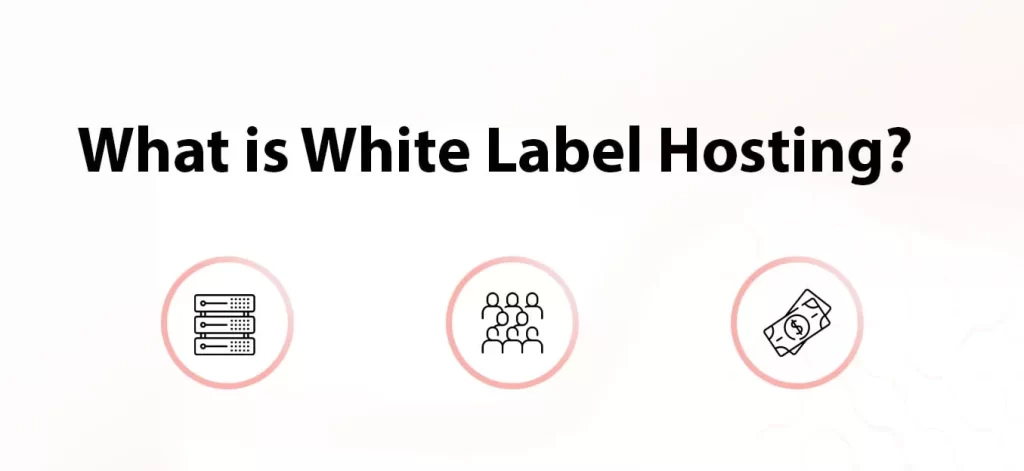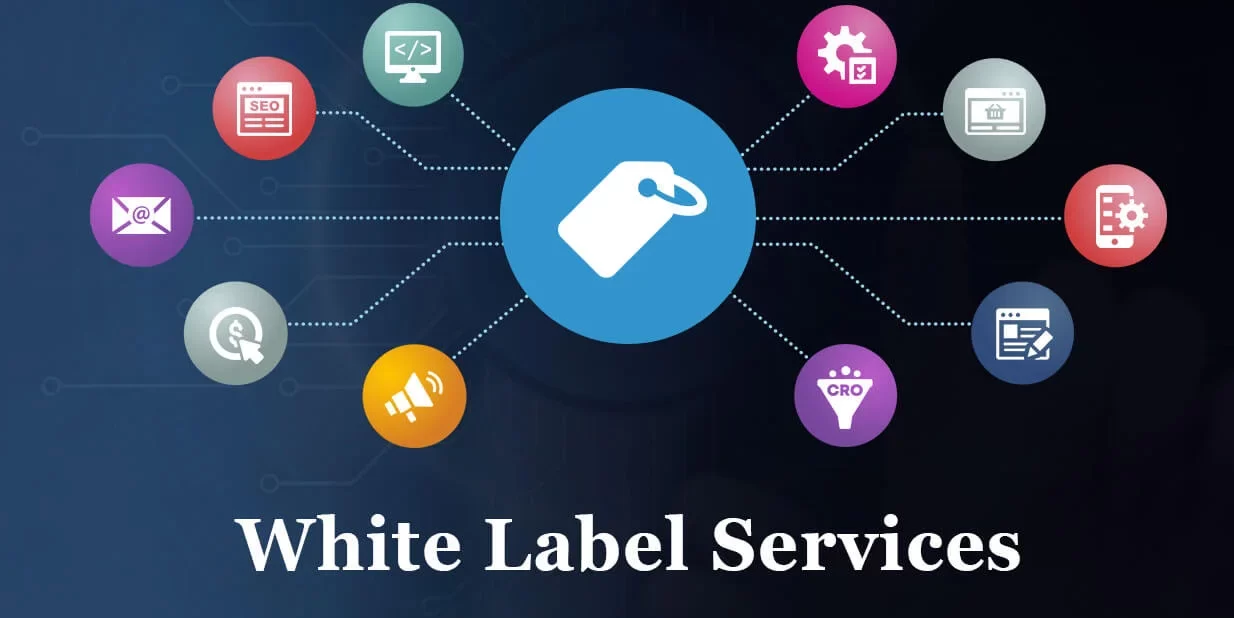Table of Contents
What is White Label Hosting?

White label hosting refers to a type of hosting service where a company provides web hosting services under its own brand name while using the infrastructure and resources of another hosting provider. In this arrangement, the hosting provider essentially resells their hosting services to the company, which then markets and sells them under its own brand.
The term “white label” comes from the idea of a generic product that can be rebranded and resold by different companies. In the context of hosting, the white label hosting provider typically handles the technical aspects such as server management, maintenance, and support, while the reselling company focuses on marketing, sales, and customer service.
White label hosting allows companies to offer hosting services without having to invest in the infrastructure and expertise required to operate a hosting platform. It enables them to quickly enter the hosting market and expand their service offerings under their own brand name. This type of hosting arrangement is common in industries where companies want to offer hosting services as part of their broader product or service offerings, such as web development agencies, marketing firms, and IT service providers.
Who Can Opt for White Label Hosting?
Several types of businesses can opt for white label hosting to expand their service offerings or enhance their existing products. Here are some examples:
- Web Development Agencies: Companies that build websites for clients can offer white label hosting as part of their services. This allows them to provide a complete solution to their clients, including website development and hosting, under their own brand.
- Marketing Agencies: Marketing firms may want to offer hosting services as part of their digital marketing packages. White label hosting allows them to provide a comprehensive solution to clients, including website development, hosting, and online marketing services.
- IT Service Providers: Managed service providers (MSPs) and IT consulting firms can use white label hosting to offer hosting services to their clients without having to invest in their own infrastructure. This allows them to expand their service offerings and provide a more comprehensive solution to clients’ IT needs.
- Entrepreneurs: Individuals or small businesses looking to start their own hosting business can opt for white label hosting as a way to enter the market quickly and with minimal upfront investment. They can focus on building their brand and growing their customer base while the white label hosting provider handles the technical aspects of hosting.
- Resellers: Companies that sell related products or services, such as domain registrars or software vendors, can offer white label hosting as an additional revenue stream. They can bundle hosting with their existing offerings and sell it under their own brand name.
How The White Label Program Works?

The specifics of how a white label hosting program works can vary depending on the hosting provider and the terms of the partnership agreement. However, here’s a general overview of how the white label hosting program typically operates:
- Partnership Agreement: The hosting provider and the reselling company enter into a partnership agreement outlining the terms and conditions of the white label hosting program. This agreement may include details such as pricing, branding guidelines, support levels, and revenue sharing arrangements.
- Branding and Customization: The hosting provider typically allows the reselling company to brand the hosting services as their own. This may involve customizing the control panel, customer-facing interfaces, and support materials with the reselling company’s branding and logo.
- Infrastructure and Resources: The hosting provider maintains the infrastructure and resources required to deliver hosting services, including servers, network infrastructure, and technical support staff. The reselling company leverages these resources to offer hosting services to their customers under their own brand name.
- Service Provisioning: When a customer purchases hosting services from the reselling company, the reseller places an order with the hosting provider. The hosting provider provisions the necessary resources and sets up the hosting account on their infrastructure.
- Customer Support: Depending on the agreement between the hosting provider and the reselling company, customer support may be provided by either party. In some cases, the hosting provider handles technical support on behalf of the reselling company, while in other cases, the reseller may provide front-line support to their customers.
- Billing and Payments: The reselling company typically handles billing and invoicing for their customers. They may collect payments directly from customers and then pay the hosting provider for the services used, either on a recurring basis or as per the terms of the partnership agreement.
- Scalability and Growth: As the reselling company grows its customer base, they can scale their hosting services by ordering additional resources from the hosting provider. The white label hosting program allows for flexibility and scalability to accommodate the reseller’s business needs.
Benefits of White Label Reseller Hosting

White Label Reseller Hosting offers several benefits to individuals and businesses looking to enter the hosting industry without the need to build and manage their own infrastructure. Here are some key advantages:
- Brand Control: Resellers have the ability to brand the hosting services with their own company name, logo, and design. This allows them to establish and promote their brand in the market.
- Cost-Efficiency: Setting up and maintaining a hosting infrastructure can be costly and resource-intensive. With White Label Reseller Hosting, resellers can leverage the infrastructure and resources of an established hosting provider, reducing initial investment and operational costs.
- Focus on Sales and Marketing: Resellers can concentrate on sales, marketing, and customer relationships without getting involved in the technical aspects of managing servers and data centers. This allows them to allocate more resources to growing their business.
- Scalability: Resellers can easily scale their hosting business by purchasing additional resources from the hosting provider as their client base expands. This flexibility ensures that they can meet the growing demands of their customers without significant upfront investments.
- Technical Support: Hosting providers typically offer technical support for the infrastructure, server maintenance, and troubleshooting. This allows resellers to provide quality customer support without the need for an extensive technical team.
- Diverse Service Offerings: Resellers can offer a variety of hosting services, such as shared hosting, VPS hosting, and dedicated servers, without the need to manage each service individually. This flexibility allows resellers to cater to a diverse range of clients and their hosting needs.
- Quick Time-to-Market: White Label Reseller Hosting enables businesses to enter the hosting market quickly. They can start offering hosting services without the time-consuming process of building and configuring their own servers and data centers.
- Risk Mitigation: By partnering with an established hosting provider, resellers can mitigate the risks associated with server management, security, and infrastructure maintenance. The hosting provider is responsible for ensuring the reliability and security of the hosting environment.
- Competitive Pricing: Resellers often benefit from discounted pricing when purchasing hosting resources in bulk from the hosting provider. This allows them to remain competitive in the market by offering attractive pricing to their clients.
Common Features Included in White Label Hosting
- Custom Branding: The ability to customize the hosting platform with the reseller’s own brand elements, including company name, logo, and branding colors. This ensures a consistent and professional look for the hosting services.
- Private Name Servers: Resellers can often set up private name servers using their own domain, reinforcing their brand and making it less obvious that they are reselling hosting services from a third-party provider.
- Control Panel Branding: The hosting control panel, such as cPanel or Plesk, can be rebranded with the reseller’s logo and company information. This enhances the overall user experience and reinforces the reseller’s brand.
- Customized Plans and Pricing: Resellers have the flexibility to create their own hosting plans, set pricing, and define resource allocations. This allows them to cater to the specific needs of their target market and adjust offerings based on customer demand.
- White Label Support: Hosting providers often offer white-label customer support, where the support interactions appear to come directly from the reseller’s brand. This helps maintain a seamless customer experience.
- Scalability: The ability to easily scale resources such as disk space, bandwidth, and computing power to accommodate the growth of the reseller’s business and the increasing needs of their clients.
- Security Features: Hosting providers typically implement security measures at the server level, including firewalls, monitoring, and regular updates. Resellers can benefit from these security features without having to manage them directly.
- 24/7 Monitoring and Support: Many hosting providers offer round-the-clock monitoring of servers and infrastructure, as well as 24/7 customer support. This ensures that any issues are addressed promptly, contributing to a high level of service reliability.
- Automated Backups: Automatic backup solutions help safeguard client data by regularly backing up website files, databases, and configurations. Resellers can often manage and customize backup settings for their clients.
- Billing and Invoicing Tools: White Label Hosting solutions may include billing and invoicing tools that allow resellers to manage client accounts, automate billing processes, and generate invoices under their own brand.
Conclusion
Web hosting will always be in demand until the internet exists. Also, with white label hosting you don’t need to deal with any costly or difficult issues of your server, since all is managed by your hosting provider.
But it is important to do research while considering the best reseller hosting plan for your business. You will need to find a host that offers quality service and the right type of server environment to you as well as your customers.
